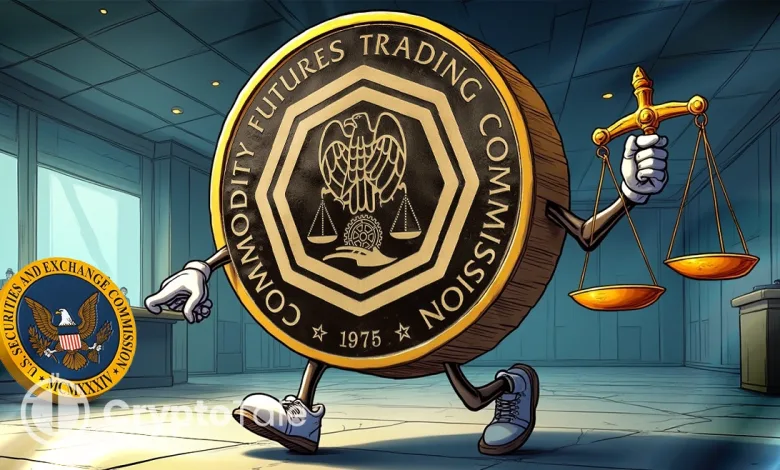SEC, CFTC Unite to Allow Spot Crypto Trading on U.S. Platforms

- The SEC and CFTC allow registered platforms in the U.S. to facilitate spot crypto trading.
- The joint move raises questions about Congress’ role in defining U.S. crypto market regulation.
- Industry participants see clarity, but uncertainty remains over who will shape crypto’s future rules.
The U.S. financial system reached a new turning point this week, with the Securities and Exchange Commission (SEC) and the Commodity Futures Trading Commission (CFTC) announcing a joint statement, confirming that registered trading platforms can facilitate spot crypto trading. The SEC and CFTC said their registered platforms are “not prohibited” from listing certain spot crypto assets and encouraged exchanges to contact staff for guidance on the process.
The statement was part of the SEC’s “Project Crypto” and the CFTC’s “Crypto Sprint.” Both programs aim to align digital assets with existing frameworks. Officials stressed that the goal is to create clear pathways for registered exchanges to enter the crypto market.
SEC Chair Paul Atkins said investors should have the freedom to choose where to trade spot crypto assets. Acting CFTC Chair Caroline Pham described the move as evidence of shared commitment to market growth.
The collaboration marks a sharp break from earlier divisions. Under previous leadership, the agencies often issued conflicting messages about digital assets. The new tone suggests regulators are now working in lockstep to expand crypto oversight.
A Tension Between Regulators and Congress
The decision has triggered debate in Washington. Congress has been preparing its own comprehensive crypto market bill. Lawmakers were expected to create the first unified legal framework for spot trading and investor protections.
Yet with the SEC and CFTC moving forward, observers question whether the agencies are filling a legislative gap or taking power from lawmakers. The joint announcement did not name specific assets. Instead, it left the door open for registered national securities exchanges, designated contract markets, and foreign boards of trade to apply existing standards to digital assets.
Other priorities highlighted by the regulators include market surveillance, fair trading practice,s and transparent settlement. They are guided by modifying the rules of the old instead of developing new rules via Congress.
The collaboration reflects pressure from the President’s Working Group, which called for joint oversight to keep blockchain innovation inside U.S. borders. The group argued that divided regulation risks driving activity offshore.
Still, critics highlight that the CFTC lacks full authority over the crypto spot market. That gap has left Congress as the expected body to clarify oversight. The SEC-CFTC partnership now places lawmakers in a difficult position: move quickly with legislation or watch regulators set the agenda themselves.
Related: CFTC Issues New FBOT Guidance for Foreign Crypto Exchanges
Industry Reaction and Next Steps
Crypto industry voices responded with optimism. The clarity was welcomed by many, claiming that registered exchanges now have a better path to compliance. There was also enthusiasm on social media with investors anticipating more mainstream adoption after the joint statement.
Exchanges such as the Chicago Mercantile Exchange, already CFTC-registered, could now list spot crypto contracts. That change would allow assets like Bitcoin, Ethereum, and Solana to be traded on federally regulated venues.
Market participants remain cautious about what comes next. The agencies said they are prepared to engage with trading platforms directly, but details about specific assets or requirements were not provided.
The collaboration leaves one major question unanswered: will this collaboration be a temporary bridge until action by Congress, or will it permanently transform the oversight of crypto? For now, the crypto regulation balance has not been achieved. Congress may continue to have the longer-term mandate of defining crypto rules in the U.S.




